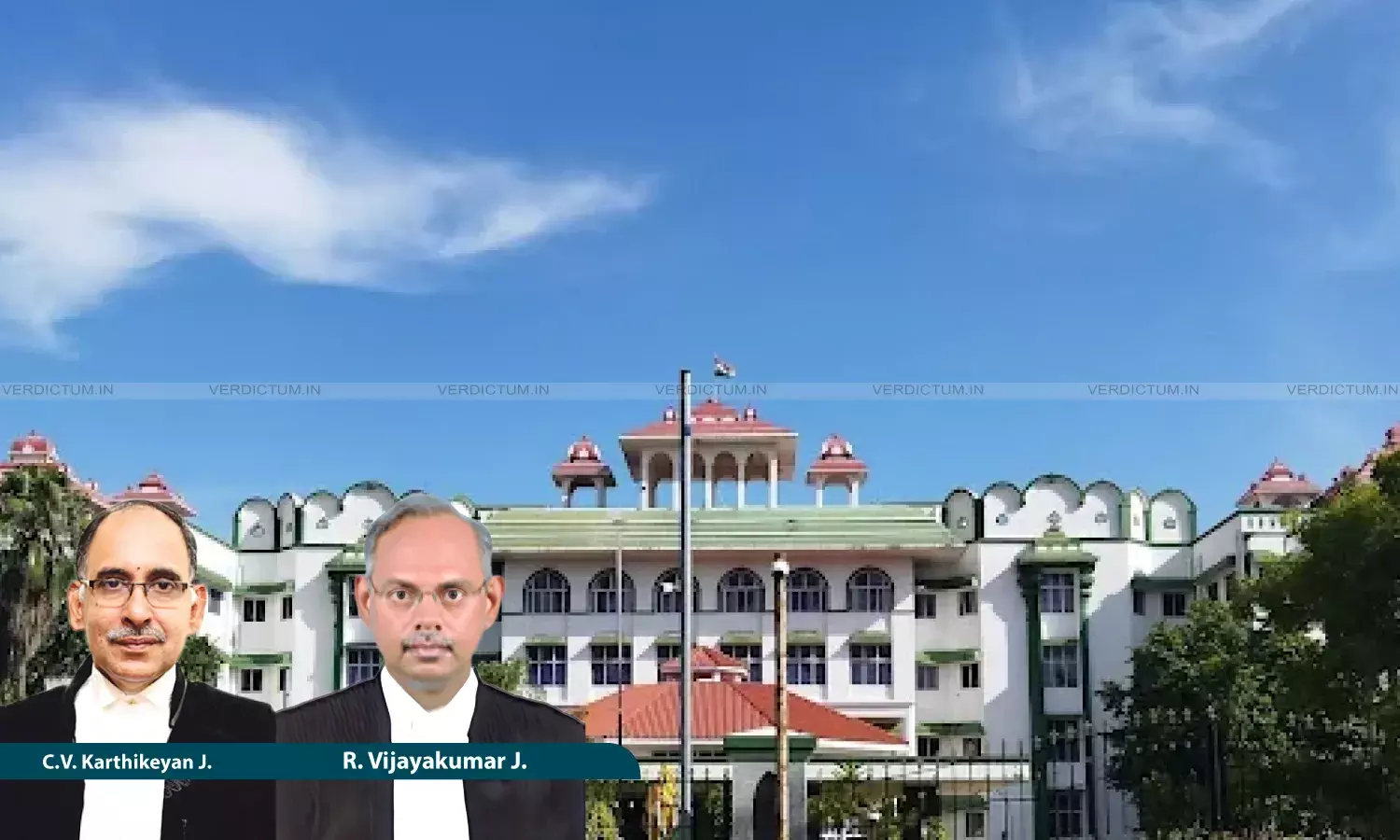Disclosure Of RTI Information Cannot Be Treated As Misconduct: Madras High Court Dismisses BHEL's Appeal Against Employee
The High Court held that information obtained under the Right to Information Act, 2005, and displayed within the organisation cannot be construed as unauthorised communication under the company’s standing orders.

Justice C.V. Karthikeyan, Justice R. Vijayakumar, Madras High Court, Madurai Bench
The Madras High Court has held that the information publicly disclosed by an employee after obtaining it under the RTI Act cannot be treated as confidential or restricted under the Standing Orders of the company.
The Court was hearing a writ appeal filed by BHEL against an order that had set aside a penalty imposed on a crane operator accused of misconduct for allegedly displaying recruitment-related information obtained under the RTI Act on a company notice board.
A Bench comprising Justice C.V. Karthikeyan and Justice R. Vijayakumar, while dismissing the appeal, remarked: “… The information disclosed was not an official communication in the traditional sense, but rather public information shared with an applicant, in this case, the spouse of the writ petitioner, pursuant to the provisions of the RTI Act, aimed at promoting transparency in the functioning of the respondent company. Such information cannot be classified as an “official document” or as relating to the internal operations or business of the company within the meaning of Sub-clause (16) of Rule 60 of the Standing Orders.”
Advocate A.V. Arun appeared for the appellant, while Advocate T. Antony Arul Raj represented the respondent.
Background
The matter arose from disciplinary action initiated by BHEL against one of its employees who had allegedly pasted on the canteen notice board information relating to the company’s 9th Artisan Examination selection process.
The information had been obtained by his spouse through an application under the Right to Information Act, 2005.
BHEL, while treating the act as misconduct under Rules 51 and 60(16) of its Standing Orders, initiated a departmental enquiry, which found the employee guilty and imposed the penalty of a reduction in pay by two stages for one year with cumulative effect.
The employee challenged the penalty before the Madras High Court, which allowed his petition and set aside the disciplinary order, holding that disclosure of RTI information could not be deemed unauthorised. BHEL then filed the present writ appeal.
Court’s Observation
A Division Bench of the Madras High Court examined the purpose and scope of the RTI Act, noting that its very objective is to ensure transparency in public authorities. Referring to Sections 2(f), 2(j), and 3 of the Act, the Court observed that citizens have a statutory right to access information unless it falls under the exemptions provided in Section 8.
The Bench held that the information in question, statistical details regarding the number of applicants and selected candidates, did not constitute an official or confidential document under Rule 60(16) of BHEL’s Standing Orders. The Court emphasised that “the information disclosed was innocuous in nature, merely providing statistical details such as the number of applications received, candidates selected, and their categories,” and that it could not have caused any disruption or harm to the organisation.
The Bench further noted that the information had already been voluntarily released by BHEL’s own officials under the RTI Act, which implied that it was not considered exempt from public disclosure, holding that “it cannot be reasonably contended that the employee committed misconduct by displaying information that the organisation itself had deemed suitable for public access.”
The Division Bench concurred with the finding of the Single Judge that the departmental proceedings lacked any factual or legal basis and that there was no evidence proving that the employee had even affixed the information on the notice board.
Conclusion
The High Court, accordingly, upheld the order passed by the Single Judge and dismissed BHEL’s appeal, concluding that “the foundation of the charge memo and the departmental proceedings was baseless.”
Cause Title: Manager, Bharat Heavy Electricals Limited v. Aron K. Thiraviaraj (Neutral Citation: 2025:MHC:2252)
Appearances
Appellant: A.V. Arun
Respondent: T. Antony Arul Raj


